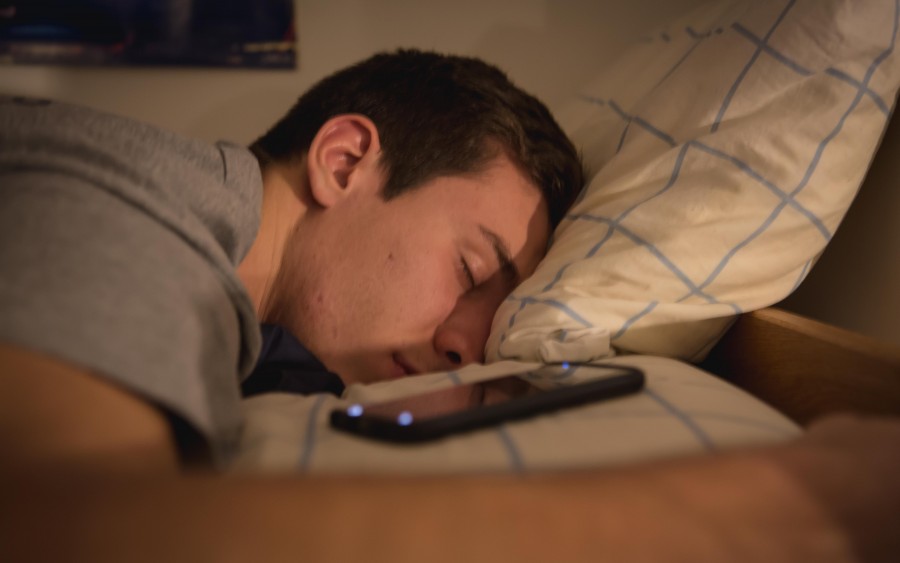You’ve Got 99 Problems, Don’t Make Sleep One
Many NYU students struggle with getting the right balance of sleep, study, and social life. (Photo by Jake Quan)
February 2, 2016
We’re officially a week into a new semester, which means that all of the sleep you caught up on over winter break is a thing of the past. Instead of adding an extra shot of an espresso to your morning Starbucks order, consider these three tips and tricks to make sure that you’re functioning at your maximum capacity. Some of them might even change how you feel about that 8 a.m. class.
Download a podcast
Podcast fans, stand down — no one is suggesting that Serial is so boring it’ll put you to sleep. There’s actually a whole genre of podcasts dedicated to helping you drift off to slumberland. If you have roommates who don’t seem to grasp the idea of “quiet hours,” check out the podcast Deep Energy 2.0. The name might be a little odd, but the calming, instrumental music is guaranteed to put you in a restful state of mind. If New Age music isn’t your thing, consider the more humourous podcast Sleep With Me. Every week’s episode features host Drew Ackerman riffing on bizarre topics in a soothing monotone to rival your most boring professor. Billed as a “bedtime story for grownups,” Sleep With Me is equal parts helpful sleep aid and weird performance art.
Set better alarms
If your alarm goes off while your body is in a particularly deep phase of sleep, it can leave you feeling groggy and disoriented all morning. Avoid this problem with free apps like Sleep Cycle alarm clock. All you need to do is tell the app when you’re going to sleep and set your phone on your nightstand. Instead of going off at exactly 7:30, the app uses the noise in the room to analyze your sleep pattern and wakes you up when you’re in your lightest sleep phase. Even if it decides that the best time for you to wake up is 7:10, you’ll feel so good that you won’t even miss the extra 20 minutes of z’s.
Track your sleep
Although we spend almost a third of our lives asleep, most of us don’t know a ton about what’s happening in our brain once we turn out the lights. If you think you’re getting enough hours of sleep but still wake up tired, it might be time to download a sleep tracker. Most of these use the microphone and accelerometer in your smartphone to collect data while you sleep. Using an app like SleepBot, you can see how much you’re tossing and turning, or learn when during the night you’re getting your deepest sleep. The app also records ambient noise while it’s running, which is a great way to settle that argument with your roommates about which one of you snores.
Email Kendall Levison at [email protected].

























































































































































